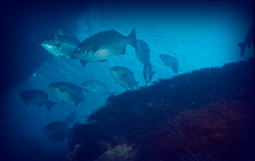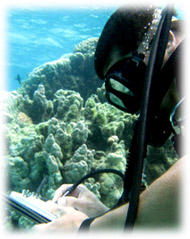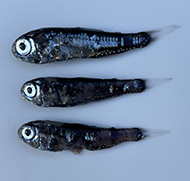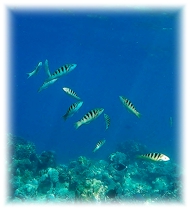
The Shima LabSTUDYING LIFE HISTORIES AND POPULATION DYNAMICS IN THE SEA |
Research overviewWe study population dynamics of reef fishes, mesopelagic fishes, and aquatic invertebrates with complex life histories. The overall objective of our research is to understand the drivers of change in ecological systems. We use a wide range of quantitative methods (including field and lab-based experiments, observational studies, otolith-based demographic reconstructions, and theory) to understand how and why populations of marine organisms fluctuate, increase or decline. Our work helps to inform the management of harvested marine species, and predicts how populations will respond to natural perturbations, climate change, and human-induced degradation of natural ecosystems. Our research is funded through competitive research grants from a range of sources, including the Royal Society of New Zealand's Marsden Fund, the Ministry of Science and Innovation, the US National Science Foundation, the Sustainable Seas (National Science Challenge), Fonds Pacifique, and Victoria University of Wellington. We currently have active research programmes in New Zealand and French Polynesia.
Current research interests |
 |
Shining a light on lanternfishes
|
 |
Reproductive phenology and lunar rhythms
|
.gif) |
Marine larval dispersal and connectivity
|
 |
Eco-evolutionary feedbacks, and their contribution to the origin and maintenance of complex life histories
|
|
Cryptic ecological interactions that determine reef biodiversity
|
 |




